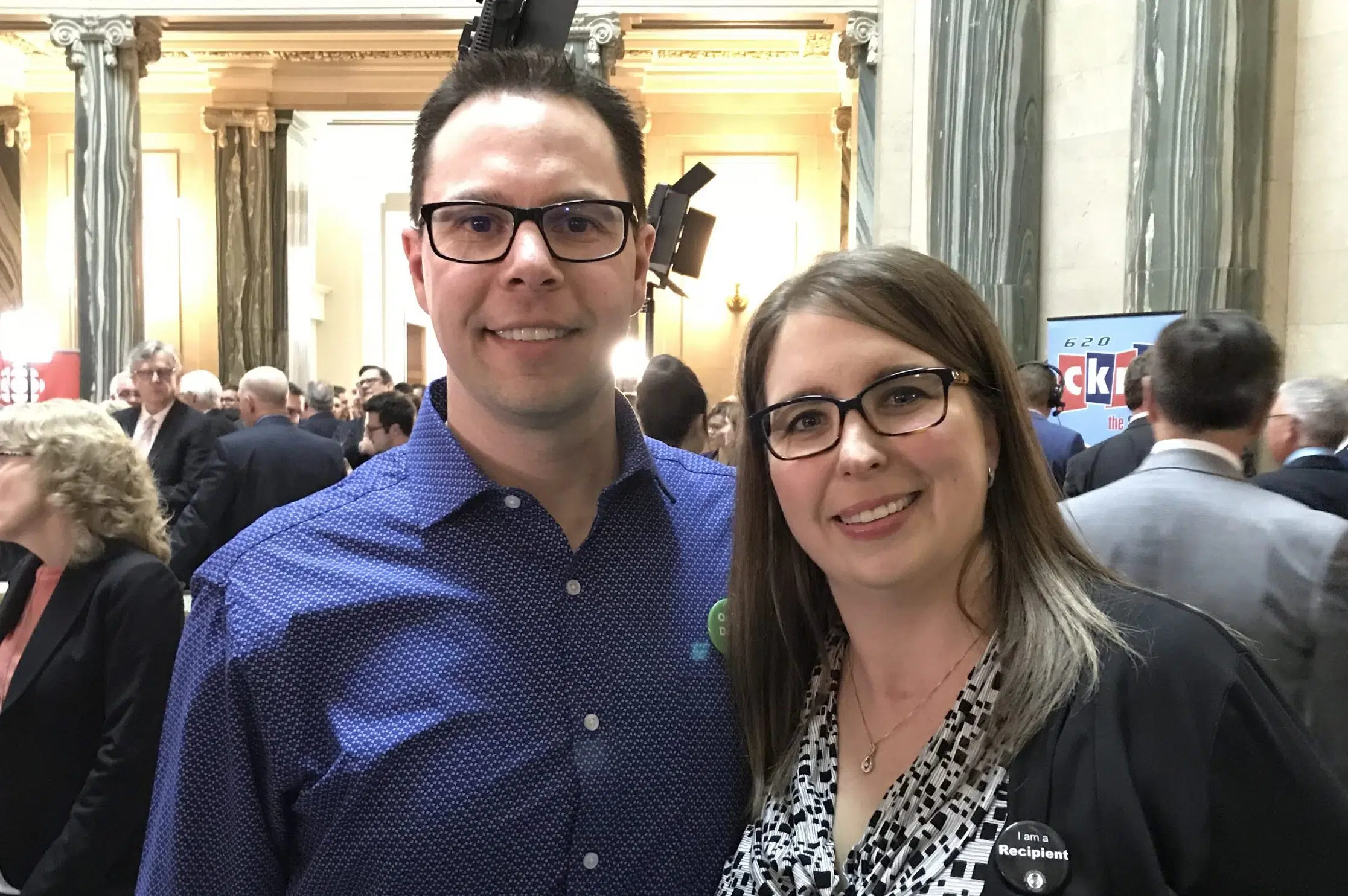It was just their third date when Chris Willenborg found out his eventual wife, Errin, needed a new kidney.
Fast forward to six months before their wedding, and he gave her one. But there were years before that when Errin was searching and hoping for a donor.
Now the couple is applauding a provincial plan to create an online organ donor registry, for which $558,000 was set aside in this week’s provincial budget.
Errin explained she was born with a horseshoe kidney, and eventually it wore out so she had to find a new one. In the five years she was looking, she said she spent eight hours a night on a dialysis machine, which does the work of a kidney.
“That’s a long time for anyone to have to wait,” said Errin.
Over the years, she had several people step forward to donate, but the offers fell through for one reason or another. So, she had to go back to waiting.
“It’s really frustrating to get your hopes up, hoping to get a kidney donation, and not have that work out,” she said.
Saskatchewan has low donation rates compared to the rest of Canada, and it’s hoped the new registry will give those rates a bump.
“Maybe (the registry) takes away some of that hard conversation, and really it can let your wishes be known in a hard time where you may not be able to speak for yourself — that you want to help other people,” said Errin.
In Canada, while a person may have filled out a donation card, their family can override their wishes when the time comes. Health Minister Jim Reiter said that, in other jurisdictions with an online registry, 90 per cent of families accept what the person’s wishes were, while in areas without a registry the number is significantly lower.
Chris said the registry could also help match up donors and recipients more quickly.
Both Chris and Errin said on budget day that they commend the government for putting forward money to improve organ donation during some lean budgetary years.
It could be a while before the registry is up and running. Reiter said the province is still in early planning stages, trying to figure out if it can be done within the ministry or not. When it comes to a timeline, it’s expected to be working within the next fiscal year.







